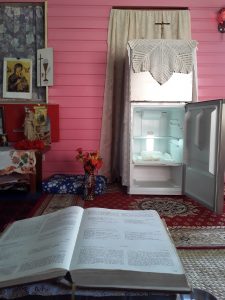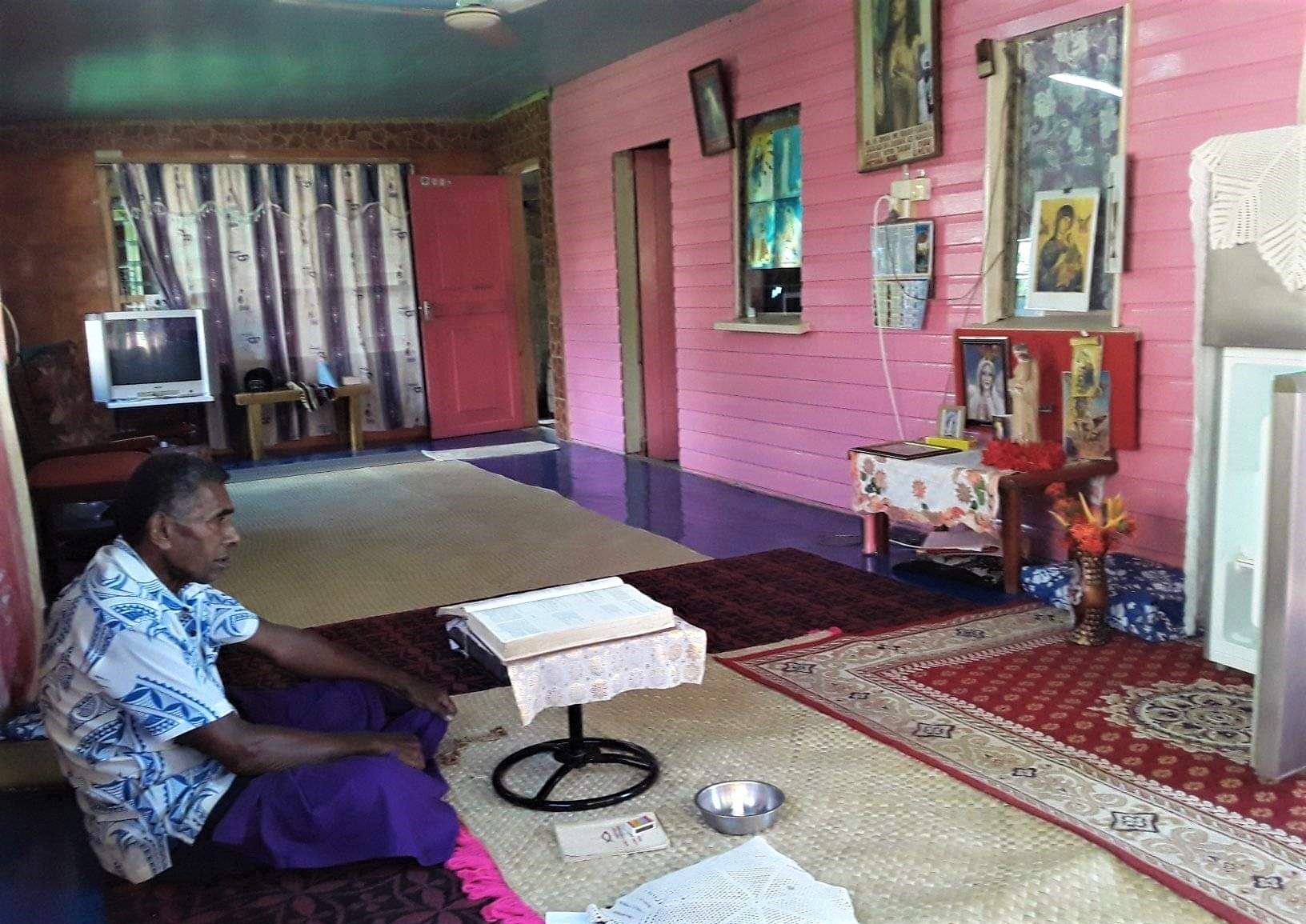This time last year, Columban missionary Fr Pat Colgan wrote an article entitled, ‘How to be People of the Eucharist, when there is no Eucharist?’ It was during Fiji’s first lockdown when Mass was not celebrated with a public congregation for three months and a number of Catholics were asking: ’What does it mean to be Catholic at this time?’
In that article, I reminded myself – and readers – that Christ is present in the Eucharist in ways other than the sacred species. For example, in the gathering of the community, in the communal listening to the Word of God, and in actions of justice and love in society. This seemed to bring some comfort and light at that time.
This year, we face a potentially new and long lockdown due to the Indian variant of Covid having broken through our international border.
A pastoral issue this year has been – what to do with the Eucharist in a hot and humid climate, so that it does not go bad in the various village tabernacles where it is stored with such reverence? To simply remove it, and transfer it, for example, to the priests’ house in town, seemed heartless.

The fridge beside the Navala Church tabernacle.
So, with our catechists, we decided on a number of options. In one village – Votua – it was moved to the empty fridge of a senior couple, who spend most of their days in prayer and singing. They adorned the fridge with a picture of the Divine Mercy, and other Fijian traditional cloths, and people are welcome to come spend time in front of the fridge, while a CD plays religious songs from morning to evening.
The immediate neighbours – Methodist and Catholic – voluntarily observe a respectful silence while passing close by that house.
In another village, Navala, the Eucharist had also been transferred to a fridge in a family house, but on the offer of a smaller fridge by the Head Teacher of the village school, we decided to move it back to the village church, because there is a tradition there of weekly adoration, which will take place according to the government’s 20-person restriction.

The open fridge in Votua with Eucharist stored inside; in the foreground, a Fijian lectionary.
Other catechists decided to gradually use up the hosts in weekly distribution of them to the sick. While Mass has been prohibited, it seems to us that lay ministers, provided they are masked and hand wash, can surely continue this work of mercy.
So, various ‘solutions’ to a new situation. What has not changed is the devotion of Fijian Catholics to the Body and Blood of Christ, and perhaps, once again, this time of ‘Eucharistic famine’ will serve to strengthen our sense of Christ in his Word, in each other, and in the poor. Let us hope so.
Support Columban mission projects by donating here

